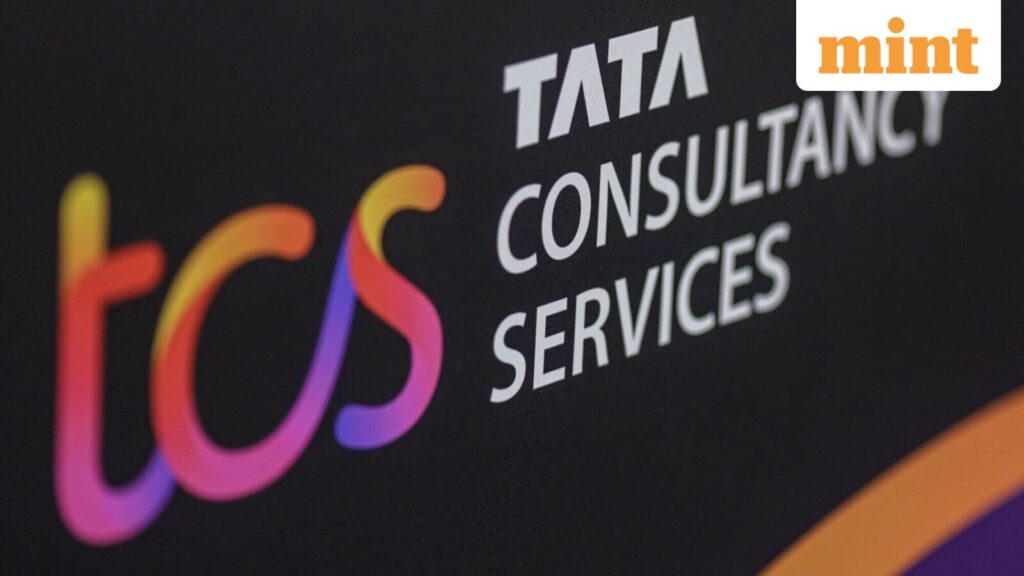American private-equity giant TPG has agreed to invest $1 billion in Tata Consultancy Services’ data centre business, as the country’s largest information technology services company looks to entrust a Tata Group executive with heading the business.
San Francisco-based TPG, which has $286 billion in assets under management, agreed to invest ₹8,820 crore to pick up a 49% stake in HyperVault AI Data Centre, the subsidiary TCS set up last month as part its plan to build 1 GW of data centre capacity by 2031. TCS will own the remaining 51%.
Deepesh Nanda, who currently heads Tata Power Renewable Energy Ltd, a subsidiary of Tata Power Ltd, is expected to head HyperVault AI Data Centre, according to an executive privy to the development.
On Thursday, TCS informed the exchanges that the company and TPG would invest up to ₹18,000 crore over the next few years. This marks TCS’s first concrete step towards building a data centre business, a first among the country’s largest IT outsourcers.
“With this capability, TCS is uniquely positioned to deliver complete AI solutions for its customers and partners. We are excited and committed to play a leading role in creating world-class AI infrastructure and solutions for the industry and work towards making TCS the largest AI-led technology services company,” said N Chandrasekaran, chairman of Tata Group.
For now, TCS is looking to build a more than 120 MW data centre facility in Navi Mumbai, which is expected to be operational in 18 months, according to the executive cited above.
TPG’s investment in TCS’s data centre business marks its second deal with a Tata Group company. In October 2021, it agreed to invest $1 billion in Tata Motors’ passenger electric vehicle unit, valuing it at $9.5 billion.
TPG’s investment in the data centre business is also the second foreign investment in a new-age business of the Tata group. Earlier this year AESC Group Ltd, a Chinese-owned EV battery maker with origins and a base in Japan, picked up a stake in Tata Group’s flagship EV battery company Agratas Energy Storage Solutions Pvt, Mint reported on 11 August.
Shift in strategy
TCS’s entry into the data centre space, arguably its biggest bet yet, was tucked away in chief executive K Krithivasan’s prepared remarks during the company’s post-earnings analyst call on 9 October. TCS said at the time it would invest $6.5 billion over six years to build 1 GW of data centre capacity.
“Essentially, this mitigates risk as we get an external investor to put money in a business that needs it,” said an executive, who did not wish to be named.
This marks a shift from TCS’s strategy – and that of the IT sector at large – of serving mainly as an IT outsourcer specialising in handling coding, customer support, application development and maintenance, cloud, data and AI functions, for foreign clients. The company, which generated $30.18 billion of revenue last year, is now focusing on its domestic market, which currently accounts for only about 6% of its total business.
AZB & Partners was TCS’s legal counsel, and Deloitte Touche Tohmatsu India LLP its tax advisors for the deal. TPG had Cyril Amarchand Mangaldas and Latham & Watkins LLP as legal counsel, and Price Waterhouse & Co. LLP as tax advisors.
TCS’s push into data centres is part of its plan to become the “world’s largest AI-led tech services company”. Aarthi Subramanian, chief operating officer, said during the analyst call last month, “If you look at the entire AI stack, starting from infrastructure as the starting layer, all the way up to the apps and the agentic apps at the (top) most layer, this gives us the coverage across the AI technology stack.”
Less profitable than core business
The company plans to sell these solutions to pure-play AI providers, deep tech firms, hyperscalers, the Indian government, and local enterprises. Hyperscalers are large-scale cloud service providers such as Amazon Web Services, Microsoft Azure, and Google Cloud.
However, this pivot comes at the cost of profitability. Management said during an investor call earlier this month that the asset-heavy data centre business would be less profitable than its mainstay IT services business.
For now, the data centre market is expected to expand on the back of higher demand due to more mobile switching to 5G, increased cloud adoption, regulatory requirements to store data within a particular region, and new, data-hungry applications.
Mumbai – where TCS’s data centre is planned – and Chennai house nearly 65% of the country’s data centre capacity, with 536 megawatts and 113 megawatts, respectively. India’s data centre capacity is expected to touch 3GW by 2030 from 1.03GW at the end of last year, according to the Kotak Mutual Fund report.
TCS shares are up 2.74% since the announcement on 9 October, closing at ₹3,145.75 on 20 November.

